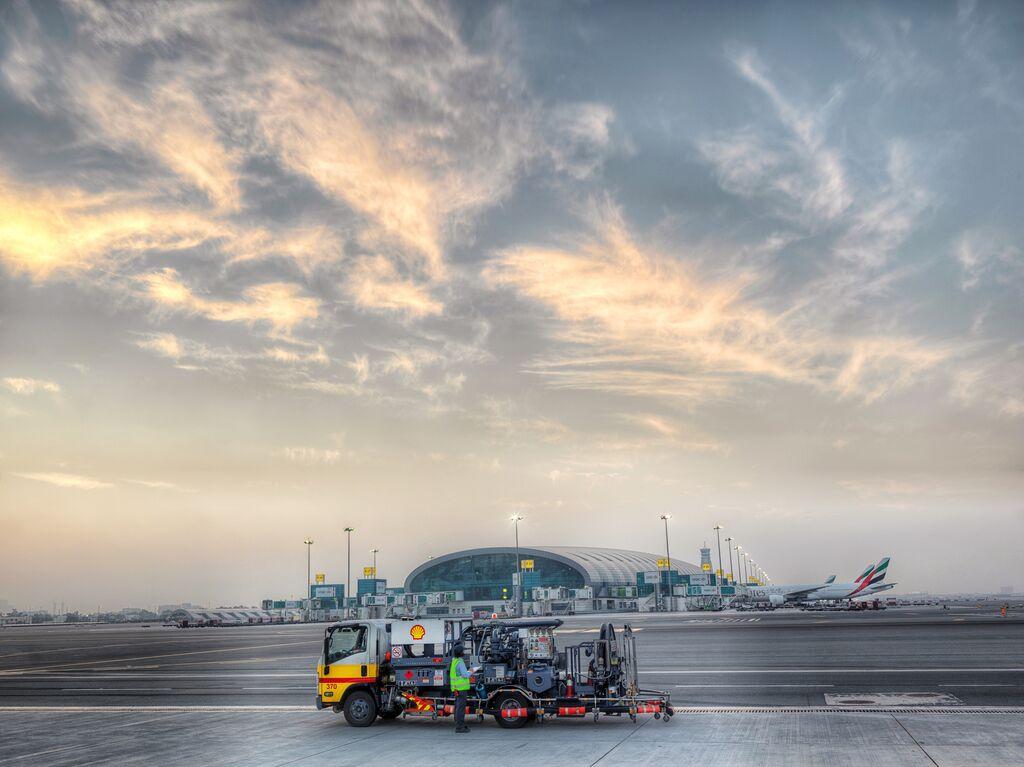Book-And-Claim's Role In Scaling SAF


There is a lot of discussion in the industry right now about book-and-claim in relation to increasing SAF usage. What is your perspective on its potential?
Given the Sustainable Aviation Fuel (SAF) market has yet to mature, there are complexities in the supply chain we need to consider and overcome. Product availability is concentrated at specific locations and demand is too fragmented to provide a strong signal to scale production.
At Shell Aviation, we believe that book-and-claim is a powerful mechanism to address the supply and demand challenges of SAF. A book-and-claim model sees SAF delivered into the aviation network and the environmental attribute data associated with its lifecycle emissions allocated to the parties that have purchased – or booked and claimed – that SAF, regardless of where it is used.
Alongside other measures within the aviation value chain, boosting demand through book-and-claim has a key role to play in scaling the use of SAF. Avelia, and platforms like it, help to collate fragmented demand, thus providing a stronger signal to potential producers and driving the sort of economies of scale that can, in turn, encourage further demand.
How can the aviation sector work with corporates to support them on decarbonising business travel?
Aviation’s decarbonisation will be very difficult to achieve without corporate travellers. They represent a minority of flight passengers, but a far greater proportion of airline profits compared to leisure travellers – creating a concentrated, high-impact demand. Corporations need to understand this – they are the power players that can help accelerate SAF uptake and decarbonisation for the wider aviation industry.
This role should also be attractive given that businesses must reduce their emissions in-line with their targets. Close to 6,000 global companies have net-zero targets, many of which cover the scope 3 emissions they need to address.[1] So, there’s an opportunity for corporations to meet stakeholder demands – be they investors, customers, employees or suppliers – and to address emissions from business travel through the use of SAF, while helping to scale SAF and support the decarbonisation of the aviation industry.
But simply encouraging business customers to purchase SAF isn’t enough. To effectively scale SAF, developing a book-and-claim model must be an important tool at our disposal. And that’s where our Avelia solution comes into play as a powerful mechanism to address the demand and supply challenges of SAF.
Shell launched its book-and-claim solution, Avelia, last summer. How is Avelia different to other book-and-claim solutions that are out there, and what progress have you made in Avelia’s first year?
Avelia is one of the world’s first blockchain powered digital book-and-claim solutions for scaling SAF, currently targeting airlines and corporate customers to accelerate investment in SAF from business travel. Avelia uses blockchain to enable clear and transparent tracking of the environmental attributes of the SAF delivered into the aviation fuelling network, tracking the whole journey from production to entry. It allows airlines and corporations to authenticate, record, and report the associated emissions reductions towards voluntary Environment Social Governance (ESG) reporting.
The use of blockchain technology here is key, as it enables the secure and transparent allocation of the SAF environmental attributes to companies and airlines. This is really important as it ensures Avelia maintains the highest sustainability standards and stands as an independently verifiable solution.
We are already seeing strong momentum building behind Avelia with participants now including Google, Bank of America, Aon, Cathay Pacific, JetBlue, Delta, Japan Airlines and Emirates. As well as helping to demonstrate the credibility of a book-and-claim model, bringing together airlines and corporates is crucial for providing the strong demand signal the value chain needs to scale up SAF production and accelerate infrastructure development.
What’s next for Avelia, and what are your long-term goals for the programme?
Our hope for next year is to see progress in book-and-claim models for SAF gaining non-governmental organisation (NGO) approvals as an acceptable form of science-based emission reduction mechanisms, with Avelia having played a key role in this. We are also looking forward to working closely with freight transport players in aviation – as well as marine and road – to accelerate book-and-claim through Avelia in those sectors.
As part of this, Shell has been working closely with Roundtable on Sustainable Biomaterials (RSB) to develop the Registry Recognition Framework that presents opportunities for compliance with the RSB Book & Claim Manual. We believe the Registry Recognition Framework will create a significant impact by strengthening the standards for SAF book-and-claim across industries and models.
What do you see as being the key steps for the industry to take in working towards acceptance of the book-and-claim model by decision makers?
An industry-accepted carbon accounting mechanism which enables both corporations and airlines to claim emissions reduction from the use of SAF is required to structurally scale up supply. This has been acknowledged in the recent Science-Based Target Aviation Sectors guidance.[2]
One of our central aims is to demonstrate the credibility and viability of the Smart Freight Centre and Massachusetts Institute of Technology’s (SFC-MIT) Center for Transportation & Logistics SAF Guidelines that sit at the heart of Avelia’s book-and-claim model. We’re also seeking alignment among several industry guidelines and diverging book-and-claim models.
Airlines and corporations signing up with Avelia are playing a key role in progressing the acceptance of a turn-key solution that will allow them to book SAF and claim associated emissions reductions in the future to ensure that the benefit and cost of SAF is shared across the value chain.
Establishing a credible and trusted solution is extremely important to us. And the SFC-MIT SAF Guidelines help make this possible. But it will ultimately be value chain collaboration that converges opinions and establishes an industry standard when it comes to book-and-claim.




